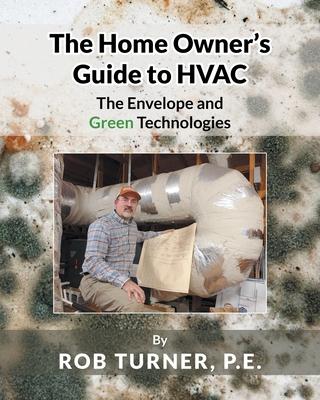How green is green? The average homeowner is usually well-informed about which products and concepts are considered "green," but they seem to have less of an understanding of how they compare, and which things work the best for the lowest investment. Did you know that 40 percent of the average home power bill is dedicated to air conditioning in warm climates? Further, energy is spent on cooking, hot water, clothes dryers, and such. Did you know that solar hydronic panels are way more efficient than solar voltaic panels? How about instantaneous water heaters? Are they good? Homeowners need to make dozens of decisions about which products or services they need in order to make their home the most efficient it can be for the given budget. Do you have mold or humidity problems? If you want to learn about things like the home envelope, HVAC, hot water, and electrical systems, this book is for you. It is written in plain English, and covers all the bases. Also, given are tips on saving the environment from an engineer's perspective. The author is a big fan of the environment, but does not like "greenwashing." The generic definition of greenwashing is the practice of making an unsubstantiated or misleading claim about the environmental benefits of a product, service, or technology. Pros and cons of various "green" products are discussed so that the homeowner can understand the smartest purchases and practices. One of the things you will learn is that the envelope of the home is just as important as the HVAC. You have to understand both to be successful. The envelope is thoroughly discussed as well as HVAC, plumbing, electrical, and the various green technologies.

The Home Owner's Guide to HVAC: The Envelope and Green Technologies
How green is green? The average homeowner is usually well-informed about which products and concepts are considered "green," but they seem to have less of an understanding of how they compare, and which things work the best for the lowest investment. Did you know that 40 percent of the average home power bill is dedicated to air conditioning in warm climates? Further, energy is spent on cooking, hot water, clothes dryers, and such. Did you know that solar hydronic panels are way more efficient than solar voltaic panels? How about instantaneous water heaters? Are they good? Homeowners need to make dozens of decisions about which products or services they need in order to make their home the most efficient it can be for the given budget. Do you have mold or humidity problems? If you want to learn about things like the home envelope, HVAC, hot water, and electrical systems, this book is for you. It is written in plain English, and covers all the bases. Also, given are tips on saving the environment from an engineer's perspective. The author is a big fan of the environment, but does not like "greenwashing." The generic definition of greenwashing is the practice of making an unsubstantiated or misleading claim about the environmental benefits of a product, service, or technology. Pros and cons of various "green" products are discussed so that the homeowner can understand the smartest purchases and practices. One of the things you will learn is that the envelope of the home is just as important as the HVAC. You have to understand both to be successful. The envelope is thoroughly discussed as well as HVAC, plumbing, electrical, and the various green technologies.